The best books of 2025
Chief literary critic Geordie Williamson previews the titles we can look forward to this year – in both fiction and nonfiction.

If you’ve been spending precious time doomscrolling instead of allowing yourself to curl up with a book, perhaps this holiday season offers a chance to reset.
There is nothing like a dose of slow reading to revive the spirits and remind us of the existence of a world created by pure, unaugmented human thought and imagination – stories that take us right to what Nabokov called “the live heart of the matter”.
May this (necessarily partial, determinedly idiosyncratic) list of books to look out for in 2025 provide some anticipatory pleasure for the moment, or even some mental bulk to lay down for lean seasons to come.
January
Let us start with pure, beach-reading delight. Two of our finest romance novelists, Rachael Johns and Karina May, start the year with novels – The Bad Bridesmaid (PRH) and That Island Feeling (Macmillan) respectively – whose light touch and salty wit cannot disguise innate intelligence and feeling. Both are perfect classical comedies in contemporary dress.
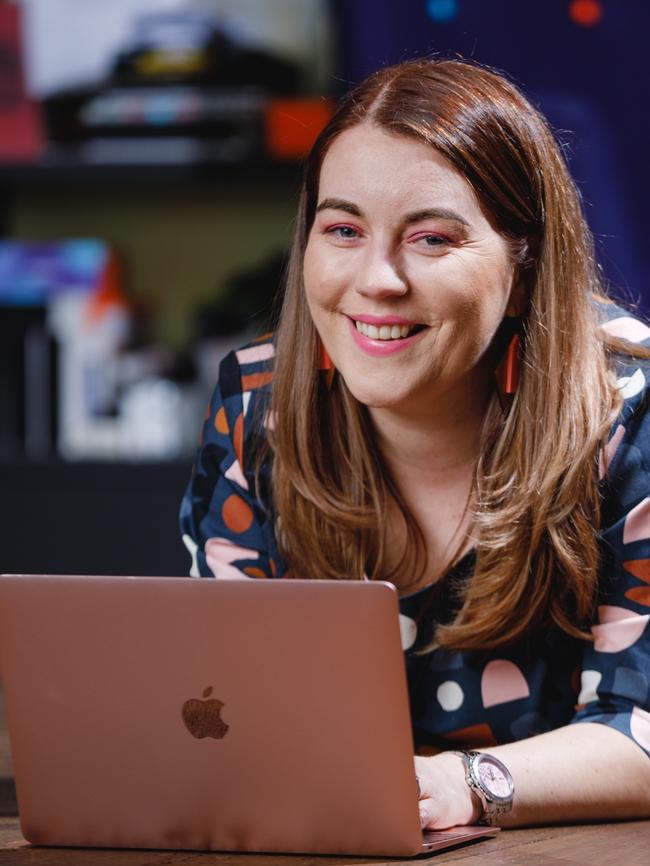
Though if you prefer some suspense on your sandy margin, I heartily recommend Three Boys Gone (Macmillan) by Mark Smith, which opens with a beach drowning on a school trip witnessed by a teacher who does not act to save her students. Not a whodunnit? so much as a whydidntthey?
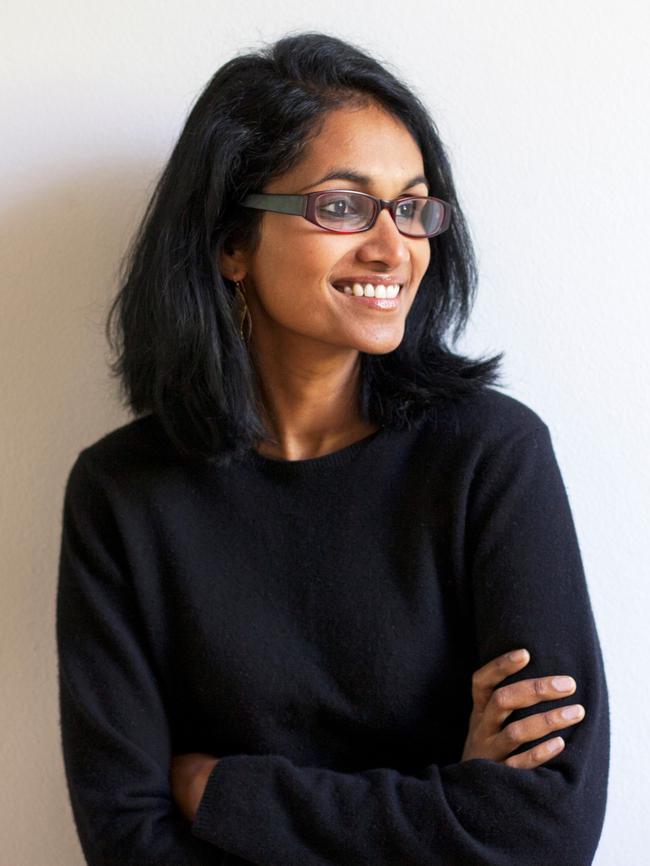
Another thriller lands this month from Shankari Chandran, Miles Franklin winning author of Chai Time at Cinnamon Gardens. Unfinished Business (Ultimo) is set in the immediate aftermath if Sri Lanka’s civil war and centres around a search for those who have executed a fearless local journalist on a busy Colombo street.
February
If, like me, you have stared up at the Macedon Ranges, wreathed in mist, and felt a salutary shiver, it’s Joan Lindsay’s fault. Joan Lindsay: The Hidden Life of the Woman Who Wrote Picnic at Hanging Rock by Brenda Niall (Text) is the much-anticipated life of one of our essential Australian novelists, by one of our finest biographers. Meanwhile, did you know that 40 years after Aboriginal Land Rights recognition in NSW, less than 1 per cent of the state has returned to Indigenous hands? For an account of the work done and the work yet to be done, Heidi Norman’s Land Back (UNSW Press) sounds judicious and comprehensive.
Dorothy Porter was a figure so charismatic and talented that she could make novels in verse into bestsellers. Gutsy Girls (UQP), by “Dot” Porter’s younger sister, Josie McSkimming, explores what it was like to grow up the sibling of one of the nation’s most beloved poets – as well as daughter to storied Sydney barrister Chester Porter. From what I’ve seen, it’s an intimate account of a brilliant and somewhat damaged family.
Another intimate account this month comes from the pen of Geraldine Brooks, a hugely successful Australian literary export to the US. Her Memorial Days (Hachette) narrates the aftermath of the sudden, unexpected death of her partner of many years, Tony Horwitz, concentrating on the trip to a remote Australian island she later undertook in order to properly grieve his loss. A well-wrought heartbreaker, this one.
A century before Porter and Brooks there was another equally brilliant but almost unknown Australian writer. Outrageous Fortunes by Megan Brown and Lucy Sussex (La Trobe University Press) tells the story of Maria Helena Fortune, Australia’s first female mystery writer – perhaps the world’s first female detective writer – whose son became a career criminal. This sounds like a cracking tale and a welcome act of recuperation by the authors.
February also brings a new novel by the talented Robert Lukins, Somebody Down There Likes Me (Allen & Unwin), advertised as “a brilliant, slyly humorous dissection of wealth, power and the tragedies even money can’t fix”, and a new thriller from Ashley Kalagian Blunt, author of last year’s best-sellingellingMode. Set in Winnipeg during one of that city’s notorious sub-zero freezes, Cold Truth (Ultimo) promises to be an enjoyably chilly read.
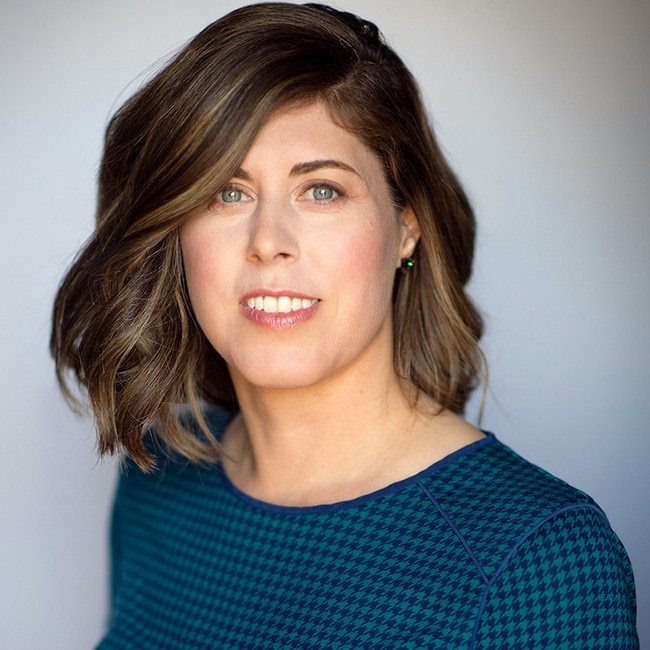
March
Robert Dessaix remains, at 80, one of our most urbane and thoughtful memoirists. His Chameleon (Text) is billed as “a memoir of art, travel, ideas and love”. Text will also publish American-Egyptian writer Omar El Akkad’s One Day, Everyone Will Have Always Been Against This, an account of his loss of faith in the West after decades of failed military adventures in the Middle East. Richard Flanagan calls it “a howl from the heart of our age”.
I loved Charlotte McConaghy’s last novel, Once There Were Wolves, for its blending of ecological concerns with psychological thrills. Wild Dark Shore (PRH) is written in the same vein, set on an island in the Sub-Antarctic Ocean. Diana Reid, author of Love & Virtue is another younger novelist with impeccable literary credentials. Her new one, Signs of Damage (Ultimo), is partly set in the South of France.
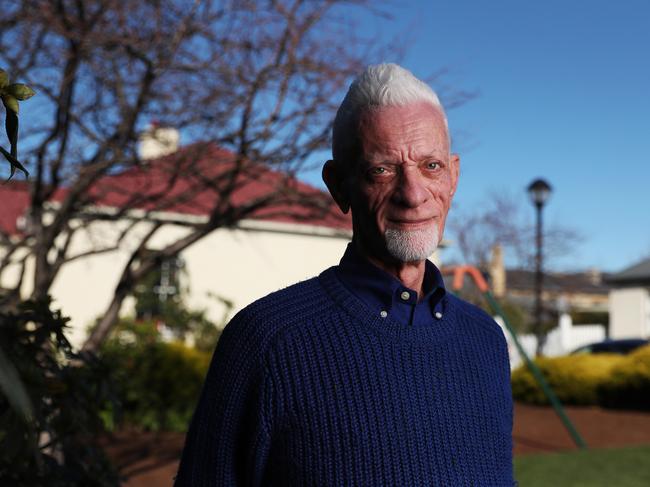
Closer to home, The Seal Woman by Beverley Farmer (Giramondo Publishing) is one of a series of reissues of the brilliant Australian author undertaken by Giramondo. This novella is the second of three by Farmer, first published in 1992.
This month also brings us a new Quarterly Essay (Black Inc.) written by Jess Hill, that brave and indefatigable writer on gendered violence; a new novel by the gifted Luke Horton, Time Together (Scribe); and a fascinating biographical study by Kerrie Davies of the “lost” decade for the author that followed publication of Miles Franklin’s My Brilliant Career, Miles Franklin Undercover (Allen & Unwin).
Two tantalising books of contemporary exploration also appear this month. Andrew Darby’s The Ancients (Allen & Unwin) records the author’s search of the world’s oldest surviving trees in the Tasmanian wilderness, while journalist Hamish McDonald island-hops from Fiji to New Guinea in the hope of understanding the past, present and future of an always remarkable yet newly significant region in the era of China’s rise, Melanesia: Travels in Black Oceania (Black Inc.)
Finally, Love Unedited (Picador) is literary maven Caro Llewellyn’s first novel. It’s a love story that may well include some lightly disguised literary giants.
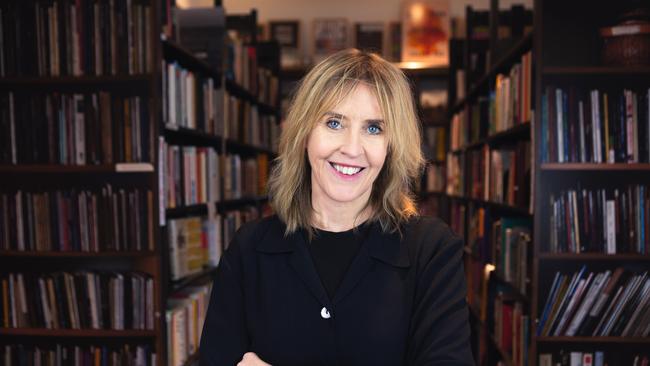
April
Skull River (Affirm) by Pip Fioretti, author of Bone Lands, sounds like my kind of crime thriller. Set in a dying goldmining town in 1912 outback NSW, the novel unwinds both as genre fiction and a biting exploration of our dark national past.
April also brings a splendid-sounding memoir from Affirm: Bloomer by Carol Lefevre is, according to its publisher, a gorgeous, optimistic, eloquent and strident book by a highly accomplished author in her 70s. Lefevre wants to subvert the negative imagery around boomers and adapt the term. Hence “bloomers” – “people not at the end of things but fully intent on embracing a late-life flourishing”.
Historian Stephen Gapps, who has spent his career rewriting the early years of European arrival in Australia, has a new book coming. The Rising (NewSouth), explores resistance warfare in NSW between 1838-1842.
Meanwhile, Kate Grenville takes a more expansive view in her new nonfiction for Black Inc., Unsettled. What is it, the writer asks in the pages of this personal travelogue, to be on land taken from others?
Jane Rawson is best known as an award-winning novelist, but she is also one of our sharpest thinkers regarding the current ecological moment. Human/Nature (NewSouth) is a wry and lyrical work of nnonfictionont explores how our apparently neutral perspectives on the natural world come encoded with cultural presumptions and ideological blinkers. A very different kind of nononfictionerges from the pen of author and journalist Robert Wainwright. His Nell, the Duchess of Manchester (Allen & Unwin) tells the story of Nell Stead, a young woman from Melbourne who married into the House of Montagu and accidentally became Australia’s only duchess.
As its title suggests, The Nightmare Sequence (University of Queensland Press) by Omar Sakr & Safdar Ahmed is a poetry collection that responds to the unfolding calamity in Gaza. James Bradley’s superb new novel deals with another kind of disaster, but in an interesting way. Landfall (Penguin Random House) is a police procedural set in the drowned fringe of a future Sydney, a city succumbing to superstorms and climate change-induced sea-level rise. Look out, also, for Vijay Khurana’s The Passenger Seat (Ultimo), an unsettling account of curdled masculinity which impressed me deeply in an early manuscript.
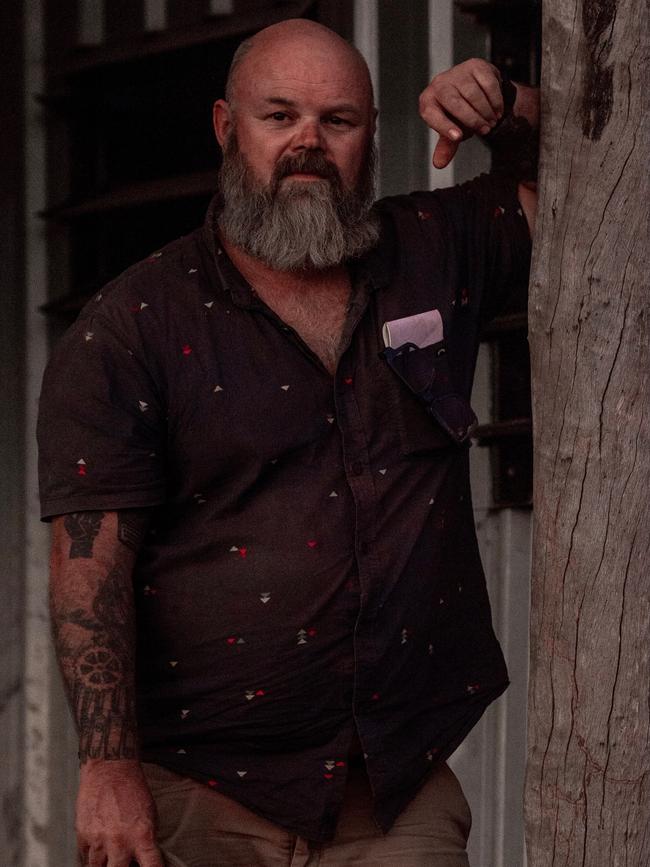
Three disparate titles close out April. Jack Latimore’s Kumanjayi: Death and Indifference (Scribner Australia) is one of two books on this list addressing that dark recent moment in Top End race relations, while Naima Brown’s second novel, Mother Tongue (Picador), is a darkly funny account of a wife and mother who wakes from a coma, inexplicably capable of speaking fluent French, and decides to change her life. The final book is dark only in nominal terms. The Three Juliets (Penguin Random House) by Tasmanian author Minnie Darke is a heartfelt love story about mothers, daughters, and a very special dress.
May
I Want Everything (Summit Books Australia) by Dominic Amerena is the first title to be published under the revived Summit imprint at Simon & Schuster: always a sign of high ambition on behalf a writer. Amerena has written “a dazzling novel of desire and deception, authorship and authenticity, and the costs of creative ambition”. Any new addition to poet Michael Farrell’s ludic and intellectually lucid body of work is worth attending to. Look out for his The Victoria Principle (Giramondo Publishing) this month. Just as exciting is the arrival of a novel by one of the country’s finest short story writers, Josephine Rowe. Little World (Black Inc.) is a title I, like many others, have awaited for years. Rowe is that singular a talent.
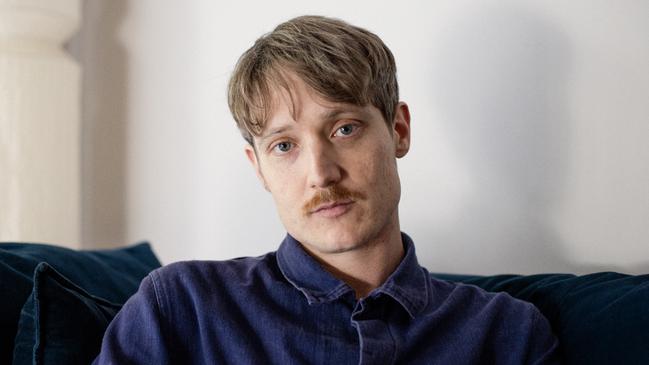
But if novels aren’t your thing, Black Inc. also has an addition to their “Shortest History” series in May. This time it’s Toby Walsh on The Shortest History of AI. The wonderfully talented writer of place Vicki Hastrich has a new book out, too, with perhaps the best title of 2025: The Last Days of Zane Grey (Allen & Unwin). Allen & Unwin also have the second book about Kumanjayi Walker, by the fabulous investigative journalist turned true crime writer Kate Wild: The Red House.
To round out the month: three impeccable novelists and a memoir. Laura Elvery’s Nightingale (University of Queensland Press), Tegan Bennett Daylight’s much-anticipated sequel to her YA hit Royals - T–e Palace (Simon & Schuster) – and an ambitious debut by Georgia Rose Phillips which explores, in fictional form, the early life of Anne Hamilton-Byrne, founder and leader of The Family cult: The Bearcat (Picador).
And the memoir? Well, it’s a biggie. Always Home, Always Homesick (Picador) by Hannah Kent provides an autobiographical account of the period the South Australian author spent living in Iceland when she was a teenager.
June
Grace Yee, whose debut verse novel Chinese Fish won this year’s Victorian Prize for Literature, has a new collection land this month - J–ss (Giramondo Publishing) – while the University of Queensland Press introduces the third series of its First Nations Classics, handsome volumes of canonical Indigenous literature with introductions by fellow First Nations writers.
Jennifer Mills’ Salvage (Picador) is a title for which I feel anticipatory excitement. It is near-future epic of speculative fiction that’s also humanly intimate. A story about the end of our world that becomes about the birth of a new one. Think of Samantha Harvey’s Orbital or Emily St John Mandel’s Station Eleven.
Anyone who has read Sheila Fitzpatrick knows she’s a historian of global renown, especially when it comes to the history of Modern Russia. The Death of Stalin (Black Inc.) is her brief yet granular account of this hinge moment of the 20th Century.
I first came to know Drusilla Modjeska through her hefty 2001 bestseller Stravinsky’s Lunch, a book that sought to rescue and renew the reputations of female Australian artists Stella Bowen and Grace Cossington-Smith. In Her Art Her Body (PRH), Modjeska returns to this recuperative mode, looking back to the lives and art of six European modernist female artists w–ose work “recast the ways in which women’s bodies, and art, could be seen”.
Also in June: The Name of The Sister (Text), a novel by the celebrated Gail Jones, in which a young woman stumbles onto an outback road at night. It’s set in Broken Hill.
July
Having had the pleasure of reading the manuscript of Wait Here (Summit Books), Lucy Nelson’s debut collection of short stories, I can back the publisher’s enthusiasm for both author and title. Nelson’s thematically tuned fictions explore the experience of childlessness in ways that are antic, bittersweet, hilarious, moving, and profound. Look out, too, for Maddison Griffith’s nonnonfictionount Sweet Nothings (Ultimo), which explores the lives of three female students who found themselves in relationships with their professors.
It has been a long time between collections for Queensland Indigenous poet Samuel Wagan Watson. His New + Used Ghosts (University of Queensland Press) will doubtless be pounced on by those who love his work, and though fans of John Kinsella often have to wait no more than a few months between outings (he is awesomely prolific), Ghost of Myself (University of Queensland Press) will surely showcase his inimitable voice and enduring concerns.
Another book I was lucky enough to read early was Katherine Biber’s The Last Outlaws (Scribner Australia). The Sydney academic’s account of Jimmy Governor, an Indigenous man who, having murdered members of a white family, went on the run with his brother Joe in 1900. The ensuing manhunt captured the newly federated nation’s attention, inspired Tom Keneally’s The Chant of Jimmy Blacksmith, and led to more deaths – including Jimmy Governor himself, who was eventually captured, tried, and hung at Darlinghurst Jail. It’s a story that encapsulates our complex national origins.
If you prefer your crime in a more escapist vein, the always reliable Michael Rowbotham has a new one out in July. The White Crow (Hachette) gives us Philomena McCarthy, a London police constable who is also a daughter of a crime boss. Magdalena McGuire’s debut novel arrives with considerable buzz. and Look out for All We Need (Ultimo). Jana Wendt also has a novel out in July, with Text. It’s called The Far Side of the Moon.
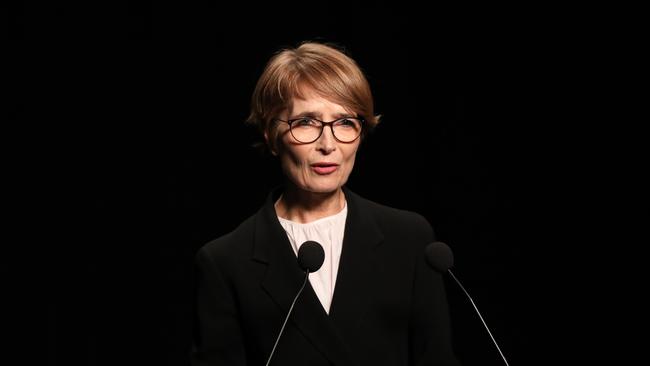
August
One of the more remarkable publishing phenomenons of recent years belongs to Anh Do: comedian, actor, artist and author of The Happiest Refugee, along with a swag of beloved children’s books.
This August, readers get the chance to meet his equally talented partner. Golden Sister (Macmillan Australia) by Suzanne Do is one of those sharp-witted, salty-sweet novels that grabs you from the opening pages and doesn’t let go.
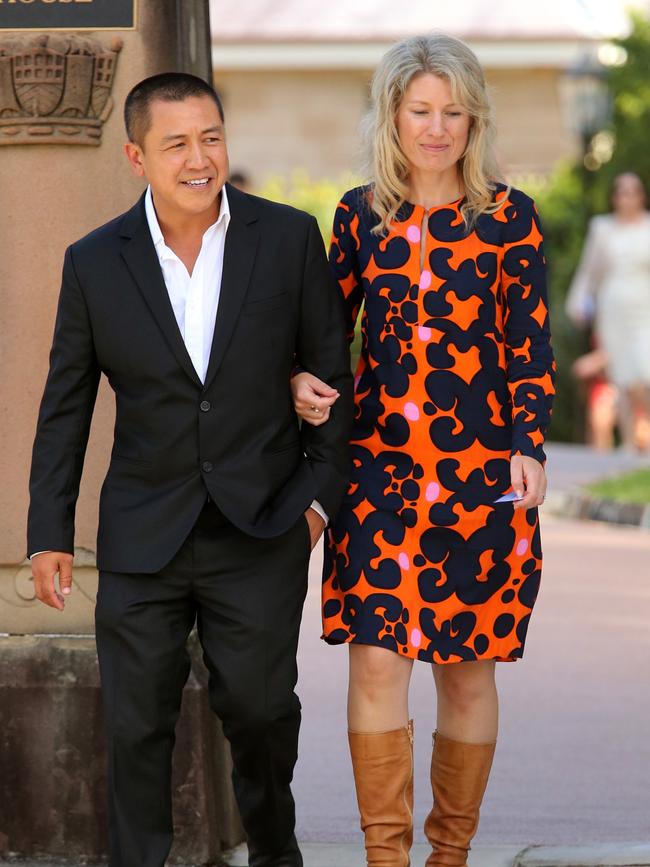
Murray Middleton is among the best contemporary practitioners of the short story in Australia. His first collection won the Vogel a few years back and his new one – U Want it Darker (Picador), a skeined set of stories that explore artistic failure – follows his 2024 debut novel, No Church in the Wild.
Meanwhile, journalist and nnonnonfictioner Paul Daley has a new novel out with Summit called The Leap, while UQP brings out three reissues of poetry collections by that grand eminence of Australian letters, David Malouf, including An Open Book, Earth Hour and Typewriter Music.
August also brings Arborescence (Hachette) by Rhett Davis. Davis’s debut, Hovering, won the Victoria premier’s Award for an Unpublished Manuscript. I know nothing about this new one except that he’s an author to watch.
Finally, a shameful bit of self-advertisement, albeit in a good cause. On Alexis Wright (Black Inc.) by Geordie Williamson is the fruit of a long engagement on my part with the work of one of our most lauded, but also most misunderstood, contemporary authors. Think of it as a celebration of Wright’s writing, as well as a guide for those who might be intimidated by the scale and formal ambition of her body of work.
September
Miranda Darling published a stunningly good novella this year called Thunderhead, concerned with the manic interior life of a character named Winona Dalloway (the Virginia Woolf echo is intentional). Marvel at the fierce poetry of that first story ahead of more of Winona in Darling’s follow-up, Fireweather (Scribe).
While we’re on the subject of follow-ups, Koori and Goorie poet Evelyn Araluen’s bestselling Dropbear was a debut collection of uncommon force that announced a serious new talent. Araluen’s new collection, The Rot (UQP) – “a romance of lost objects and expired hopes, a study in the abject injustices of the world we are all complicit in”, according to the poet – will be one of the most anticipated releases of the year.
Black Inc. has a big month: a monograph by Peter Hartcher on Australia’s Place in the New Cold War; and an intriguing expansion of scholar Emily Gallagher’s thesis entitled The Childhood Imagination in Australia, a book that charts how our young people have made meaning and beauty on their own terms.
Two big genre novels round out September: in The Hiding Games (Scribner), Kate Mildenhall embraces the thriller form. Expect The Slap by way of Nine Perfect Strangers. And Tasmanian author Meg Bignall will give readers a brazen aria of black humour and pure raunch in her novel Stroke!.
And then there is Johanna Bell, whose first verse novel for adults, Department of the Vanishing (Puncher and Wattmann), asks the haunting question: what would it be like to live in world without birdsong? Bell is best-known as a children’s author but this new book sounds beguiling.
October
It will be exciting to see the first winner of The Australian Fiction Prize – sponsored by this newspaper and HarperCollins Australia – on the shelves. Tasmania’s Katherine Johnson won the prize with a manuscript tentatively titled A Wild Heart, set on remote Maria Island. It features a young woman shielded from the world by her over-protective father.
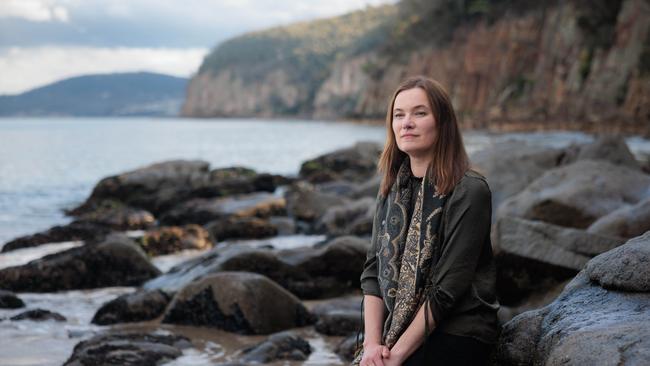
Montreal-based but Australian-raised cartoonist Lee Lai is brings out a new graphic novel, Cannon, with Giramondo. Her debut, 2021’s Stone Fruit, was rapturously greeted so expect great things.
Great things are also a given when it comes to Tony Birch, especially in the realm of short fiction. I read the title story of this forthcoming collection – Pictures of You (UQP) – early this year. It was an impeccable slice of tragicomic realism.
October also brings the publication of Catherine McNamara’s Flesh Songs (Puncher & Wattmann). At the level of the sentence, says her publisher, there is no one to touch her – and Catherine’s last book, The Carnal Fugues, was shortlisted for the Prime Ministers Award last year.
November
From Walter Marsh, author of the biography Young Rupert, comes what sounds like a fabulous work of creative nonfiction “Australia’s greatest museum heist”. Drawing on unpublished case files, dossiers, and private archives, The Butterfly Thief (Scribe) promises to be a true crime saga that spans the globe.
Black Inc. releases three new Shortest Histories this month: First Nations Australia by Larissa Behrendt, Australia by Mark McKenna, and the United States courtesy of Don Watson. At the same time, English journo and former BBC Foreign Correspondent Nick Bryant releases Good Australia, Bad Australia (PRH), a work that presumably grows out of his recent National Press Club Lecture, titles The Consequential Country, in which Bryant argued that Australia was a nation more significant in global terms than it knew, a possessor of considerable soft power that could be used for good or ill.
December
Finally, the year’s end features new novels by two Picador authors of real talent and grace. Fiona McGregor’s The Trap returns us to the Sydney underworld of Iris Webber, though during World War II this time, with authorial perspective shared among several fascinating real-life figures, while Lucky’s author Andrew Pippos heads in a new direction.
His unnamed novel is a love story set in the newsroom of a dying Sydney newspaper. What I’ve read of it so far is wry, wise and quietly moving.
The Internationals
This year’s overseas titles begin with 2024 Nobel prizewinner Han Kang’s new novel, We Do Not Part (PRH) in February. Expect the South Korean author’s trademark dark-hued poetry and complex narrative engineering, in a taleconcerned with a massacre that took place on Jeju Island 70 years ago.
Given Han Kang’s manner and mode, you may need some recovery fiction. Anne Tyler, as reliable a storyteller as they come,has a new one called Three Days in June (PRH), while rising star Curtis Sittenfeld has a short story collection — Show Don’t Tell — also from PRH.
Source Code by Bill Gates arrives the same month and from the same publishers. Billed as the “origin story” of one of the most successfuland influential people of our era, it will doubtless be a huge title.
On a more modest scale (but doubtless better written), On Elizabeth Bishop by Colm Toibin (Princeton University Press) is a book-length meditation on the great American poet by a great Irish novelistand critic.
Dream Count by Chimamanda Ngozi Adichie (HarperCollins) in March is the celebrated Nigerian author’s first novel in a decade. I suspectit will make a huge splash, though hopefully not drowning out novels by two incredible talents that appear in the same month: The Antidote (Random House UK) by Karen Russell — George Saunder’s younger, cooler, weirder art-sister — and Flesh by David Szalay, also from Random UK, a much-anticipated novel by the Booker Shortlisted British-Hungarian author.
Mark Twain by Ron Chernow promises to be a fresh revisioning of the literary giant’s life by one of the commanding biographers of thepresent, while Is a River Alive? by Robert Macfarlane, a work that argues for granting the status of living being to rivers, is, he says, the book he hasbeen waiting to write all his life. It has my vote for most anticipated title of 2025. Both are May titles and published byPRH.
The Emperor of Gladness, a new novel from garlanded Vietnamese-American poet and author by Ocean Vuong (PRH) arrives in June with as much advancefuss as Ngozi Adichie’s — though neither title can quite compete with the excitement that attends Atmosphere: A Love Story (PRH) by Taylor Jenkins Reid, gazillion-title-selling author of The Seven Wives of Evelyn Hugo — her new one an epic set againstthe backdrop of the 1980s space shuttle program.
I am sorely tempted, despite the hefty cost of the hardback and its almost 1200 page extent, to preorder a copy of The World At First Light: A New History of the Renaissance by Bernd Roeck, which arrives in June from Princeton University Press. Roeck, professor of Modern History at the Universityof Zurich, explores the cultural and historical preconditions that enabled the European Renaissance (spoiler alert: it’s allabout the Gutenberg revolution).
Empire, Incorporated: The Corporations that Built British Colonialism by Philip J Stern arrives in the same month, though this time from Harvard University Press and in a paperback edition, sosomething of a cheat given first publication was last year. I’m including the work because it has been so rapturously receivedand possesses important implications for our own history.
Meanwhile, July sees publication of a big book by the OG mushroom man, Paul Stamets. His The Field Guide to Psilocybin Mushrooms (PRH) promises to be the standard text on the most radical and fascinating turn in contemporary culture: back towards psychedelicsas a way of reshaping human consciousness and healing troubled minds.
Ali Smith, that dauntingly gifted Scottish novelist and playwright, has a new book out in August with PRH. Glyph is the second of two interconnected novels (Gliff, the first, refers to a glance or sudden glimpse), which can be read asa stand-alone but tells a story that was hidden in its predecessor. Sounds like good, clever fun.
The Dissappearers by Marlon James arrives in September from the same firm and is a new historical novel from the Booker winning author of A Brief History of Seven Killings. Its exploration of the aftermath of a violent homophobic attack in Jamaica in the late 1980s sounds personal for James. Expect fireworks from this one.






To join the conversation, please log in. Don't have an account? Register
Join the conversation, you are commenting as Logout